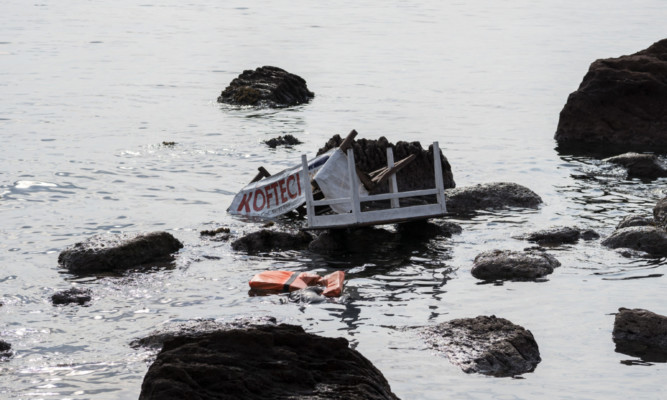The Prime Minister has been getting pelters for his “bunch of migrants” comments. Even Tories took a sharp intake of breath.
It’s really not a great idea to describe fellow human beings in clear distress in such dismissive terms. What made this latest outburst even worse is that it was pretty obviously not a careless off-the-cuff remark but a pre-prepared line amid a diatribe directed at Jeremy Corbyn.
It is, of course, second time round for Cameron. He has form. The last time he talked about a “swarm” of migrants.
To find the clue to the plot behind these sad Tory tactics then just look closely at where the remarks were presented in the exchanges at last week’s Prime Minister’s Questions.
First, Cameron made a totally irrelevant mention of Corbyn’s right-hand man, John McDonnell. This was to allow him to accuse both the Labour leader and his Shadow Chancellor of meeting the unions and endorsing flying pickets, meeting the Argentinians to give back the Falklands and meeting a “bunch of migrants” in Calais to let them “all come to Britain”.
This three-pronged attack was where Cameron wanted to get to, and having laid the ground he duly delivered his pre-prepared script. The offensive remark was what is known in politics as a “dead cat” tactic a term borrowed from the wild west world of Australian politics.
It means that if you are losing an argument then the solution is to fling the political equivalent of a dead cat on the kitchen table. That way everyone starts talking about the gruesome “dead cat” as opposed to the subject which was previously under discussion.
The Tory backroom plan was to make Cameron appear tough on immigration in order to strengthen his defences against the Tory Euro sceptics. The subject to be avoided was the Google tax scam. The “dead cat” was the “bunch of migrants” remark.
As it happens I was at the parliamentary assembly of the Council of Europe in Strasbourg last week. An Italian MP came up to me to boast that his government had extracted proportionately more money from Google than the UK Chancellor of the Exchequer. It’s little wonder that the Prime Minister was anxious not to talk about Google.
This low-blow “dead cat” tactic carries the fingerprints of Cameron’s Aussie adviser, the newly beknighted street fighter Lynton Crosby. It’s worthy of note that by some definitions Crosby himself is an economic migrant or at least an economic vagabond since he earns large sums in many countries.
I do wonder if the Prime Minister fully understands how unpleasant people find this “Flashman” side of his personality. His comments also carry a huge irony. At the very moment he was demonising immigrants, all of England was cheering on their bright new tennis hope, the richly talented Johanna Konta.
The Konta family are in fact double migrants, first from Hungary to Australia and then to England when Johanna was 16 and studying at the Sanchez Casal academy in Spain.
She switched sporting allegiance from Australia to Britain only when she became a British citizen in May 2012.
Now let me be clear. I am glad that Johanna has come to these shores. If she had chosen Scotland, like the late Elena Baltacha, I would have been even more delighted, but I am pleased that England now has a decent tennis player to cheer on. However, Johanna’s family are economic migrants.
They are not fleeing persecution or civil war but have come to find a better life just like the millions of Scots who through history migrated overseas to find better opportunities, in addition to the countless thousands who were cruelly cleared from their land. All contributed amazing things to the countries they made their home and that extraordinary Scottish impact is recognised the world over.
The same is true of the 40,000 Ugandan Asians that Prime Minister Heath allowed entry into Britain in 1972 after they were expelled by Idi Amin. They and their children have soared to the top of many and various professions and were once described by a Tory minister as “Britain’s secret formula for success”.
Among the tens of thousands of Jewish refugees fleeing Nazi persecution in the 20th Century were some of the greatest thinkers in world history such as Sigmund Freud (to Britain) and Albert Einstein (to America).
Of course no country can have an open door immigration policy and nor should we, and I dare say that many in Calais are economic migrants. But equally, I have no doubt that many more are refugees fleeing terror and persecution.
However, you really have to wonder if it has even entered Cameron’s head that among this “bunch” huddled together in appalling conditions in Calais there just might be some refugees of the brilliance of an Albert Einstein or migrants with the talent of a Konta?
Either way, each and every life is worth saving.
